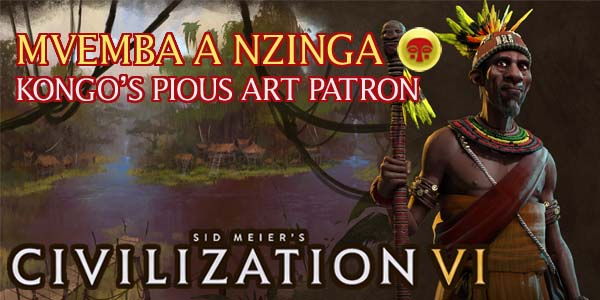
The Kingdom of Kongo was a small, but prosperous kingdom located on the west coast of sub-Saharan Africa. It can trace its origins back to the late 14th century, when Lukeni lua Nimi conquered the city of Mwene Kabunga and renamed it M'banza-Kongo. The city grew rapidly in an otherwise sparsely-populated region, and by the 17th century, it contained about one-fifth of the entire Kongo population (around 100,000 people). It's large population made it a prosperous and wealthy trading hub that eventually attracted the attention of European powers. The Portuguese set up colonies in Kongo territory, where they would set up a Roman Catholic church that would become one of the strongest churches in all of Africa. In 2017, the entire city of M'banza-Kongo was declared a UNESCO World Heritage Site.
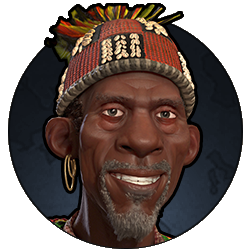
In the first half of the 16th century, Kongo was ruled by Mvemba a Nzinga. His father converted to Christianity following the arrival of the Portuguese, and Mvemba a Nzinga added "Afonso" to his name, later becoming known as King Afonso I of Kongo. Afonso played a leading role in Kongo's conversion to Christianity and helped to establish and promote the Roman Catholic Church in the region. The reasoning for his conversion is unclear. Some scholars believe that he was motivated by genuine faith; while others believe that he was only complicit in the conversion in order to facilitate trade with European powers, and possibly to try to spare his population from becoming subject to the Atlantic slave trade. While Kongo had a slave economy of its own, and the kingdom willingly sold slaves to the Europeans, Afonso still denounced the Portuguese as exploiting Kongo's cooperation by kidnapping free Kongo citizens in violation of Kongolese law. The King of Portugal responded by dispatching officers to oversee the slave trade and ensure that only lawful slaves were sold to Europeans, and he demanded additional tribute from Kongo, such as wines and grains.
DISCLAIMER:
Civilization VI is still very early in its life-cycle. Strategies for the game (and for specific leaders and civs) may change as Firaxis applies balance patches, introduces new features, or expands the game through DLC or expansion packs, or as the Civ community discovers new strategies. As such, the following strategy guide may change from time to time. I will try to keep it up-to-date, and will make notations whenever changes are made. I'll also post links in the official 2K forums and CivFanatics, where I'll also report any changes made. If possible and practical, I will try to retain the original content of the strategy for posterity.
I welcome any feedback or suggestions that readers wish to offer. Feel free to post on the linked forums, or by posting a comment at the bottom of the page.
This guide is up to date as of the Summer 2017 patch (ver. 1.0.0.167) (Nubia DLC)
Kongo is a civilization that thrives in jungles and forest, growing massive (and productive) cities. Mvemba a Nzinga adds a unique religious flavor to the civilization by preventing it from being able to found its own religion, while simultaneously wanting other players to send their religion to you.
[More]
d42e1e83-3ee9-4f90-ab44-b8ddd956e2eb|1|5.0
Tags:Sid Meier's Civilization, Civilization VI, Kongo, Kongolese, Mvemba a Nzinga, Afonso I, Nkisi, religious convert, enthusiastic disciple, Ngao Mbeba, Mbanza, neighborhood, housing, appeal, religion, woods, rainforest, art, sculpture, archaeology, relic, artifact, museum, culture, slavery, Atlantic slave trade, unique improvement, unique melee unit, swordsman
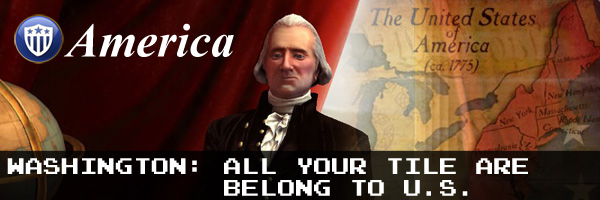
Continuing my series of strategy posts about Brave New World's modified civilizations, I'm going to take a look at strategies for George Washington's America. Since Brave New World's Fall patch (2013) America's ability was buffed and its unique unit now allows it to generate more late-game golden ages.
The lands of North America have been occupied by various native tribes for thousands of years, but these tribes lived in relative isolation from the rest of the world, except (possibly) for a brief period of interaction with the Danish Vikings. After Christopher Columbus landed in Haiti in the late 15th century, a flurry of explorers and colonists primarily from Britain, France, Spain, and the Netherlands began arriving in North America, rapidly exploring and settling the continent. These colonists gradually displaced the native inhabitants, including the Iroquois and the Shoshone. But conflict between the colonies and their European masters (primarily Britain) eventually culminated in a revolutionary war in which the colonists retreated to the countryside, and used guerrilla tactics to defeat the British and establish the United States of America.
Despite being founded on the principles of "equality" and "inalienable rights", the early history of the United States is dominated by tension between its slave-holding and free populations. These tensions eventually culminated in the outbreak of the American Civil War, which resulted in more American casualties than the Revolutionary War, both World Wars, and the Vietnam War. Combined. Union victory established America as a modern industrial nation with a singular identity, and Americans stopped referring to the country as "These United States", and began calling it "The United States". This war is also significant in world history because it is the first major war in which industrial technologies such as the machine gun, telegraph, railroad, steam-powered ironclad ships, and (probably most significantly) photography were used to large effect, which changed the way that future wars would be fought and the way that they would be perceived by the public. And it was one of the first major wars to employ new urban fighting tactics that would become the basis of combat for the wars of the 20th century. America would play a pivotal role in those 20th century wars as well, and would emerge from them as a dominant global super power.
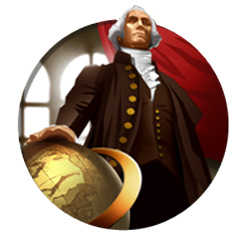
George Washington was a colonial general who lead the British colonies in America in wars against the French and various Native American tribes. When the colonies declared independence, Washington became one of the premiere generals for the new colonial militia. Knowing that they could not defeat the British in conflict in the cities or open field, Washington and the other colonial leaders gave the cities to the British and retreated to the hills and forests of the countryside. Here, they successfully employed large-scale guerrilla tactics that weakened the British supply lines and culminated in American victory. Washington would then become the country's first President and set several precedents, such as the idea that the President would be a civilian position (as he refused to wear his military uniform while in office), and that the President should step down after two terms. [More]
9d9b8548-3186-4f3c-b9db-4a3a10293e70|1|5.0
Tags:Sid Meier's Civilization, Civilization V: Brave New World, Civilization V, America, George Washington, Washington, B-17, flying fortress, Manifest Destiny, line of sight, exploration, reconnaissance, ancient ruins, golden age, Golden Age from Victories, tile acquisition, musketman, bomber, Civ V Fall Patch, Minuteman, Civ-V, slavery, Atlantic slave trade
Today marks the anniversary of quite a few historical events of significance.
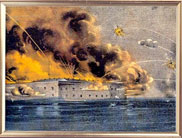
Today, the American Civil War turns 150 years old, as we observe the anniversary of the April 12, 1861 attack by Confederate troops of Fort Sumter near Charleston, South Carolina. Although a grim occasion on its own right, this attack does have some silver lining, as it began the conflict that would eventually set in motion this nation's steps towards racial equality.
50 years ago today, on April 12, 1961, Soviet cosmonaut Yuri Gagarin became the first human being to travel into space and orbit the Earth.

Today is also the 30th anniversary of the 1981 maiden voyage of the space shuttle Columbia, the world's first reusable spacecraft. It was a momentous and cheerful day for space exploration. The shuttle itself met a tragic end, when it disintegrated on re-entry during a mission, killing its seven crew and passengers over 20 years later. I'd like to take this moment to thank the brave men and women of NASA for the heroic work they do expanding the horizons of human knowledge and experience, and to offer my sincerest condolences to the friends and family of all such heroes who did not return. [More]
|

| 12 | | | | | | | 60 | | 11 | | | | | | | 55 | | 10 | | | | | | | 50 | | 09 | | | | | | | 45 | | 08 | | | | | | | 40 | | 07 | | | | | | | 35 | | 06 | | | | | | | 30 | | 05 | | | | | | | 25 | | 04 | | | | | | | 20 | | 03 | | | | | | | 15 | | 02 | | | | | | | 10 | | 01 | | | | | | | 05 |
|